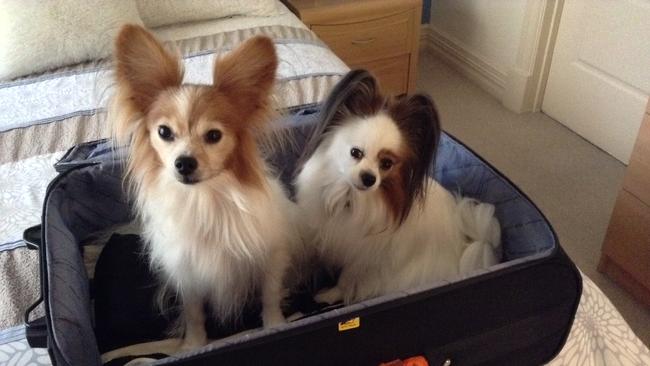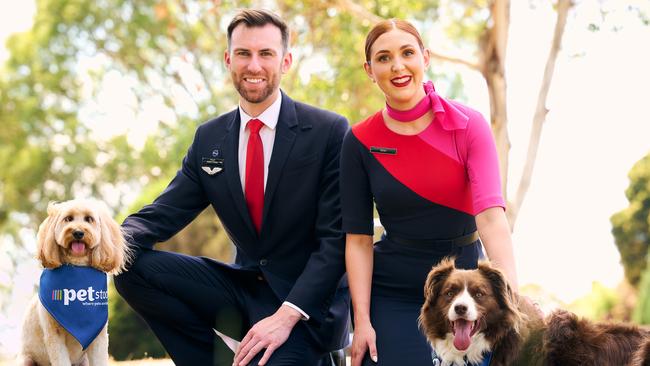Qantas frequent flyers get pet privileges in new partnership
The flying kangaroo is tapping into Australia’s $3.2bn pet industry with a new frequent flyer partnership, but the pet-friendly move ends there.
Qantas’s behemoth frequent flyer program is tapping into the $3.2bn pet industry with a new partnership with retailer PETstock, but the airline’s pet-friendly move will not extend to dogs and cats in the cabin.
The Civil Aviation Safety Authority changed the rules on the carriage of animals in late 2021, handing responsibility for pets in the cabin to the flight operator and pilot-in-command.
As yet, none of Australia’s domestic carriers has seen fit to allow animals out of the cargo hold other than certified assistance dogs.
Qantas and Jetstar were the first to rule out pets in the cabin when CASA first flagged the rule change and as of Wednesday, they were sticking to that.
On the other hand, Virgin Australia continued to consider the regulation change, after a Facebook survey showed strong support for the move.
Rex was also not ruling out pets in the cabin at some point in the future providing clear guidelines were established, while new budget airline Bonza was not allowing pets in the cabin or cargo hold as yet.
“At Bonza, we love our furry friends, but for now we’re focused on getting wheels up for our initial route map,” said chief commercial officer Carly Povey.
Charter operators such as Alliance Aviation were the exception, with small pets permitted in certain circumstances at the charterer’s request.

Most US and many European airlines allowed some animals in the cabin, provided they were suitably restrained, such as in a carry bag or container.
In many instances, larger dogs were still required to travel in the cargo hold, but smaller pets could remain with their human at an additional cost of between $60 and $100.
While Qantas was not about to welcome pets on board, the airline was very aware of the enormous expenditure on pets in Australia, estimated at $3.2bn last year.
Under its tie-up with PETstock, pet owners could earn frequent flyer points on every purchase from the retailer, which offered veterinary services and grooming as well as supplies.

The move extended the frequent flyer program’s reach even further, with opportunities to earn points in almost every aspect of consumerism, including finance, fuel, insurance, energy, groceries, exercise and holidays.
Companies like PETstock, Woolworths and banks pay Qantas to offer frequent flyer points to customers, resulting in revenue of $1.33bn in the 2022 financial year.
Qantas Loyalty chief executive Olivia Wirth said they were sure the opportunity to earn points while shopping and caring for pets would be popular.
“Australia has one of the highest rates of pet ownership in the world, and adding more value to the growing spend on pets is great news for our members,” said Ms Wirth.
“Frequent flyers significantly boost their points balance every year through everyday spending like shopping at Woolworths and filling up at bp, and now they can earn points on their pet care too.”
PETstock CEO Shane Young said the company was thrilled to partner with Qantas and “bring more value to their customers”.
“With over 6.9 million households now owning a pet across the country, we are always looking for ways to add more value to the lives of our dedicated pet parents,” Mr Young said.
The arrangement would see frequent flyers earn one Qantas point for every dollar spent on pet supplies and veterinary services, and three points for every dollar spent on grooming.
Repeat purchases of “participating brands” would earn frequent flyers five points for each dollar spent.






To join the conversation, please log in. Don't have an account? Register
Join the conversation, you are commenting as Logout